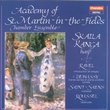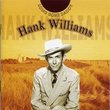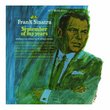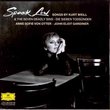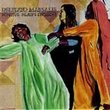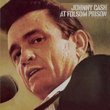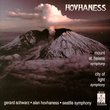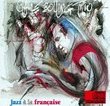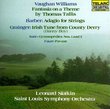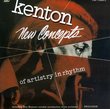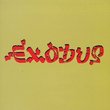| All Artists: John Adams, Sergei Rachmaninoff, Robert Shaw, Renée Fleming, Karl Dent, Victor Ledbetter, Atlanta Symphony Orchestra & Chorus Title: Adams: Harmonium - Rachmaninov: The Bells / Fleming, Shaw Members Wishing: 0 Total Copies: 0 Label: Telarc Release Date: 10/29/1996 Genre: Classical Styles: Opera & Classical Vocal, Historical Periods, Modern, 20th, & 21st Century, Symphonies Number of Discs: 1 SwapaCD Credits: 1 UPCs: 089408036521, 089408036521 |
Search - John Adams, Sergei Rachmaninoff, Robert Shaw :: Adams: Harmonium - Rachmaninov: The Bells / Fleming, Shaw
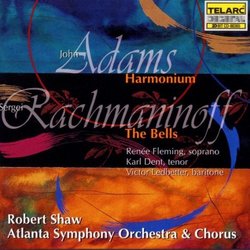 | John Adams, Sergei Rachmaninoff, Robert Shaw Adams: Harmonium - Rachmaninov: The Bells / Fleming, Shaw Genre: Classical
|
Larger Image |
CD DetailsSimilar CDs
Similarly Requested CDs
|
CD ReviewsSatisfying to Have Two Disparate Choral Symphonies on One CD Grady Harp | Los Angeles, CA United States | 06/24/2006 (5 out of 5 stars) "It is our good fortune that Robert Shaw elected to record John Adam's late 20th century masterpiece 'Harmonium' before he died. And to elect to add to this important performance another work of choral interest from Rachmaninov, 'The Bells', is a nod to his sound programming skills that marked his amazing career. Shaw and the Atlanta Symphony Orchestra and Chorus bring another dimension to the Adam's work that only serves to prove its importance. Long dedicated to gorgeous choral sound and immaculate diction, Shaw brings the poetry of Emily Dickinson and John Donne into that realm of complete communication, not only because we can understand every syllable, but also because he pays attention to Adams' sensitive musical settings of these moving works. It is a strong performance. And Robert Shaw glows especially brightly with this performance of the Rachmaninov 'The Bells' based on a poem by Edgar Allen Poe. The work is a bit bombastic but contains some of Rachmaninov's finest orchestration moments. The chorus sounds resplendently Russian in color. The soloists vary: tenor Karl Dent may have a larger voice in live performance but here he is barely audible above the orchestra and chorus. His is a sweet tenor sound but without the ability to ring. Renee Fleming once again proves she can ride over the largest 'Straussian' orchestral sound and her contribution in the lovely second movement is a highlight of balance with chorus and orchestra and soloist. Victor Ledbetter is the capable if not exciting baritone. Recorded in 1995 in the Symphony Hall in Atlanta, the recording could have been enhanced by finer technical adjustments to the mixing of the difficult elements of these two works. But this recording remains a treasure as it comes form the heart and hands of a great choral conductor. Grady Harp, June 06" American minimalism and Russian romanticism Brett A. Kniess | Madison, WI | 01/03/2006 (5 out of 5 stars) "Robert Shaw and Telarc have released another disk of not-too-often performed choral/orchestral works, but they are ones that are important: John Adams' Harmonium and Rachmaninoff's The Bells, two works featuring texts by important authors. John Adams is considered the emancipator of strict minimalism, and really has done much for the genre. This work contains many of the usual techniques: repetitive, "mantra"-like rhythms, slow building harmonies and slow harmonic rhythm, all with inner drive and vitality. The three-movement cantata Harmonium, uses the poem Negative Love by John Donne and Because I Could Not Stop for Death and Wild Nights by Emily Dickenson. Negative Love begins with highly repeated nonsense syllables which eventually turn into the actual text. Adams starts on a unison note and adds notes little by little. When the text comes in, a chanting quality begins. Eventually a two against three, poly-tonality choral interplay segues into a reprise of the nonsense syllables, all of which builds into a grand climax and fades away, ending peacefully. Usually without melodies, the second movement shows Adams at his most tuneful in Because I Could Not Stop for Death. Death picks up the speaker of the text for a slow carriage ride to eternity. They pass various life sequences, but the musical carriage ride never quickens until the mention of eternity. The creeping, and somewhat tuneful movement segues into the wild, orgiastic Wild Nights. After a wild orchestral build-up, voices in extreme high registers, portray the ecstasy of the text in a passionate fervor. Waves of crescendos and decrescendos make a tumultuous rhythmic feeling. The work ends peacefully flowing with texts of rowing and the sea. This early Adams cantata shows the expansion of the minimalist genre Adams is famous for, as well as the expansion of American music. This cantata is certainly groundbreaking in the scheme of choral music, not to mention much of the choral/orchestral oeuvre. Rachmaninoff's choral symphony, The Bells, is a Russian version (here translated into English) of Edgar Allen Poe's The Bells. It is a look at the role of bells throughout ones life (youth, marriage, mortality, and death). Highly romantic, rich luscious orchestrations permeate the work. The first movement, for chorus, solo tenor, and tinkly bells, is a sprite and fond look at youth, with the trumpety tenor Karl Dent. Filled with utter joy, there is a brief respite of a minor passage (each movement seems to dwell on mortality), but overall, an innocent mood prevails. Soprano soloist Renee Fleming is featured in the sentimental second movement. "Mellow wedding bells" in a dreamy setting, is intoned by the chorus, while the soprano emotionally depicts the importance of bells at matrimony. The raucous third movement is a scary realization of mortality. A frightening orchestral and purely choral feature, the mood is fearful and panicked. In opposition, the final movement, featuring baritone Victor Ledbetter, is a calm and contemplative view of death. The final two pages of purely orchestral music is the most satisfying sounds of all (perhaps in all of Rachmaninoff's works even); an emotional ride. This disk is oddly programmed, but the works are important enough and interesting, it can be overlooked. A highly romantic choral symphony and a minimalist cantata, rarely recorded, are welcome additions. The soloists in the Rachmaninoff are outstanding, the best form any Shaw CD. The chorus could be clearer in the recording (the Rachmaninoff fares better than the Adams), but Shaw's execution is clear. The Atlanta Symphony Orchestra is also right on pace. If you enjoy symphonic choral works, this CD will not displease." Strange But Enjoyable Mix Karl W. Nehring | Ostrander, OH USA | 07/13/2009 (4 out of 5 stars) "John Adams's minimalist/maximalist work for chorus and orchestra was first recorded by the San Francisco Chorus and Orchestra about a decade ago on the ECM New Series label. I gave that disk an enthusiastic recommendation when it came out, but I must say that this new Telarc is better in some significant ways--better performance, bigger (although sometimes too diffuse) sound, and with the inclusion of the Rachmaninoff work (the Nonesuch disk contained only the Adams piece, which clocks in at around 35 minutes), more music.
The Adams is an exciting piece of music that I love to play over and over. Why on earth Telarc thought to put Adams on the same CD with Rachmaninoff I have no real idea. Both works are based on texts by American poets (Emily Dickinson on Harmonium, plus a poem by John Donne; Edgar Allen Poe on The Bells), but musically the two pieces do not really seem to belong together, at least to these ears. Still, the disk is well worth the price just for the Adams, and the Rachmaninoff is fun to listen to from time to time." |

 Track Listings (7) - Disc #1
Track Listings (7) - Disc #1